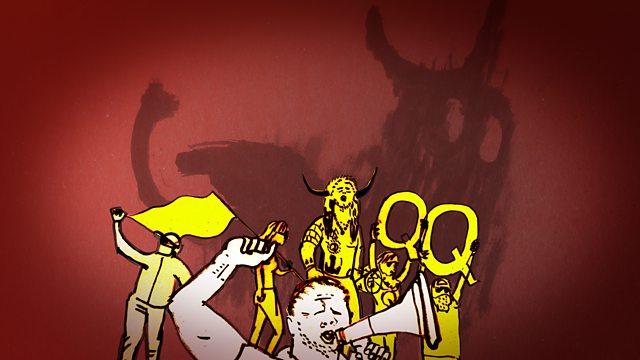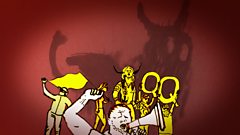Banished
Aleks Krotoski asks where did those kicked off mainstream social media platforms go after the Jan 6th riots go and what have they been doing in the year since?
Aleks Krotoski asks where did all those groups and individuals deplatformed after the Jan 6th riots go and what have they been doing in the year since?
With Donald Trumps 'Truth Social' platform about to launch it's hoped all his supporters will flock to this new gathering place. But who have they become in a year without his tweets and facebook posts to galvanise them? Many flocked to encypted messaging services like Telegram or self proclaimed 'pro free speech' platforms like Gettr and Gab. The fear is that moderate Trump supporters will have been radicalised in such spaces and the more extreme elements made even more extreme.
Neo-nazis, white supremacists and other far right activists have taken the opportunity to go a recruiting drives in these largely unmoderated spaces cosying up to those they think can be turned to their cause and gradually exposing them to ever more extreme content.
Aleks will join those who've been trying to monitor what's been happening behind these digitally closed doors and what might be done about what's been going on there.
Producer: Peter McManus
Last on
Clip
-
![]()
Undercover with neo-nazis and Qanon
Duration: 01:23
Jared Holt

Jared Holt is a resident fellow at the Atlantic Council鈥檚 Digital Forensic Research Lab (DFRLab), where he researchers domestic extremist movements in the United States and how they utilize the internet.
Aleksandra Urman

Dr. Aleksandra Urman is a postdoctoral researcher in the Social Computing Group of the University of Zurich.
In her research, she employs computational methods to examine various aspects of political communication on social media, with a particular focus on polarization, authoritarian regimes and far-right groups.
Prof. Neil Johnson

Neil Johnson聽is a professor of physics at George Washington University in Washington D.C., and a visiting professor at Royal Holloway, University of London. He was a Research Fellow at the聽University of Cambridge, and later a Professor of Physics at the聽University of Oxford聽until 2007. He has more than 300 published research papers across a variety of research topics. His published books include聽Financial Market Complexity聽published by聽Oxford University Press聽and聽Simply Complexity: A Clear Guide to Complexity Theory聽published by聽Oneworld Publications.聽
Kurt Braddock

Dr. Kurt Braddock is an Assistant Professor in the School of Communication and Faculty Fellow in the Polarization and Extremism Research and Innovation Lab, both at American University. His research centres on the persuasive strategies used by extremist groups that promote recruitment and radicalization to violence in support of those groups. He advises and consults with a number of domestic and international organizations, including the U.S. Department of State, the U.S. Department of Homeland Security, and the United Nations Office of Counterterrorism. His first book, Weaponized Words: The Strategic Role of Persuasion in Violent Radicalization and Counter-Radicalization was published by Cambridge University Press in 2020.
Amanda Moore

Meili Criezis

Broadcast
- Mon 21 Feb 2022 16:30麻豆社 Radio 4
Podcast
-
![]()
The Digital Human
Aleks Krotoski explores the digital world



